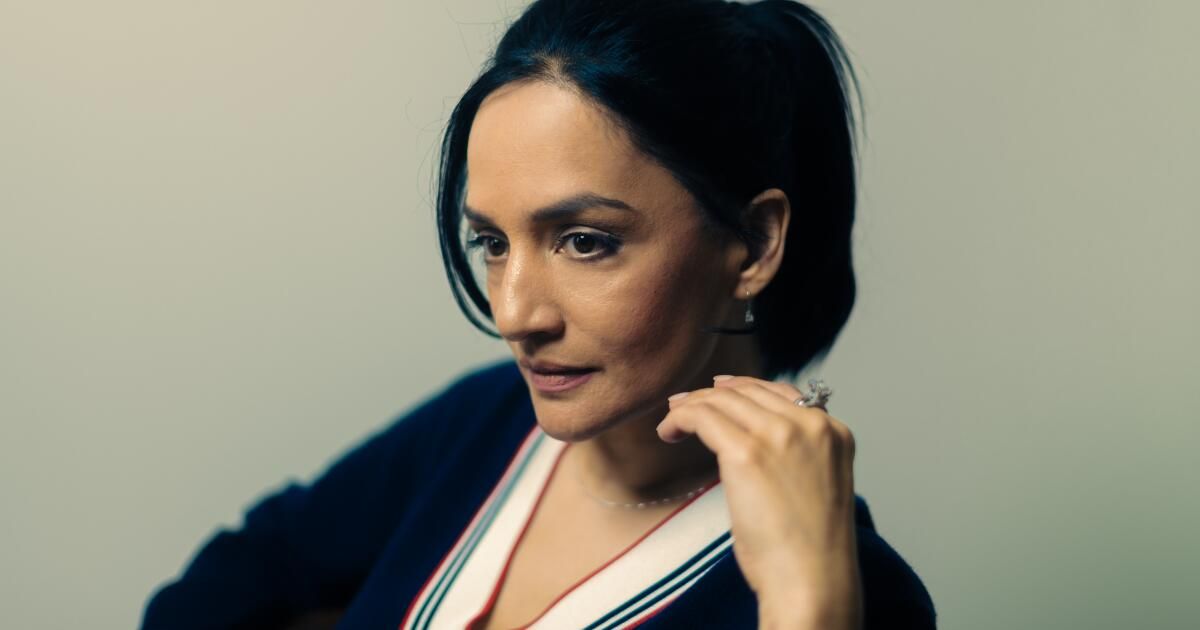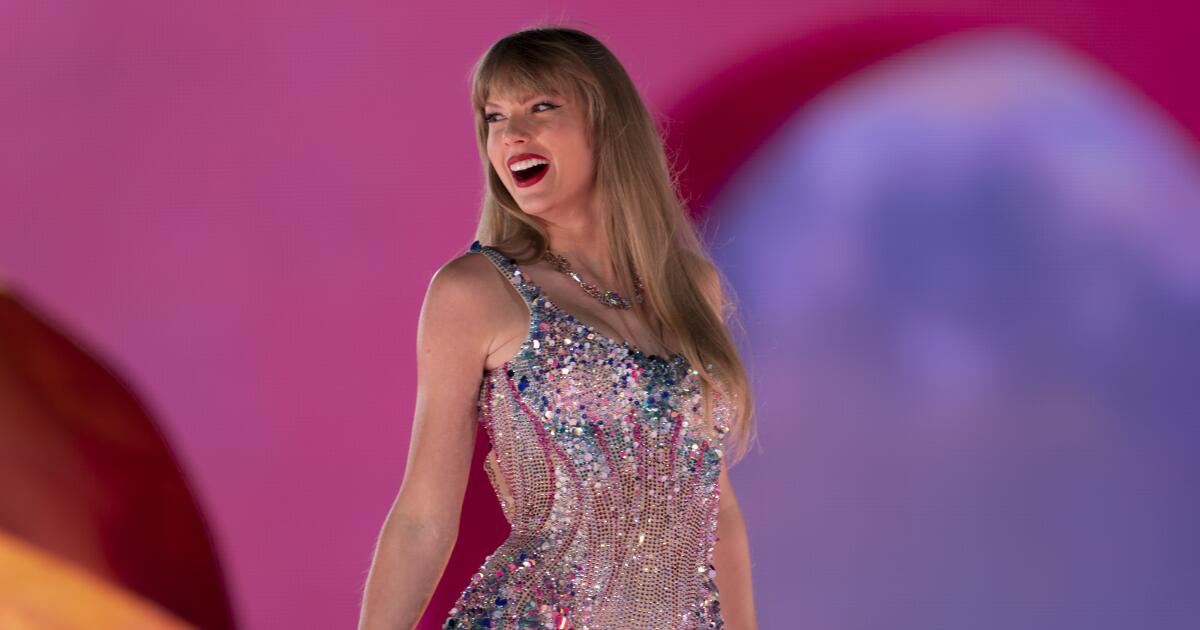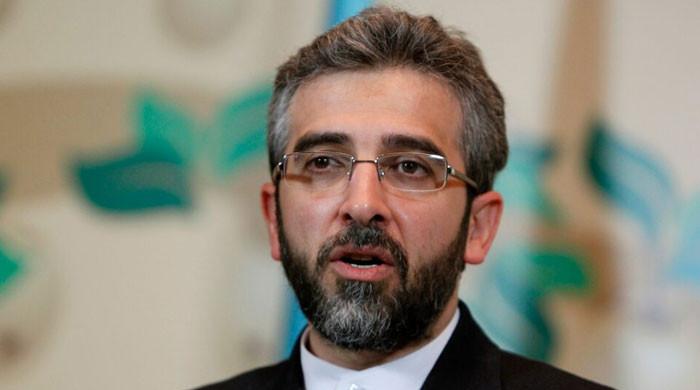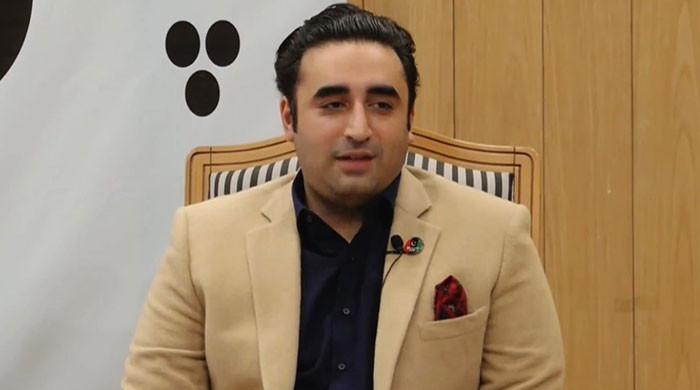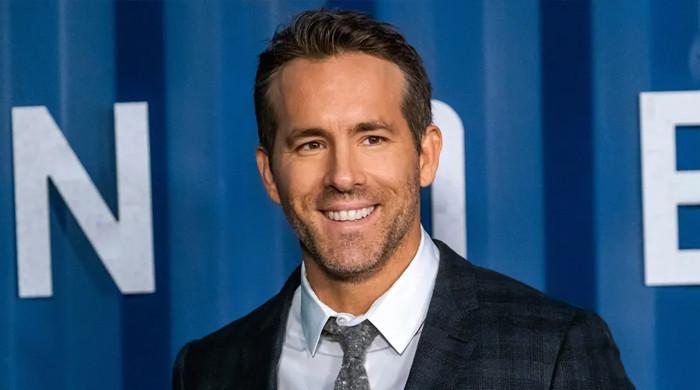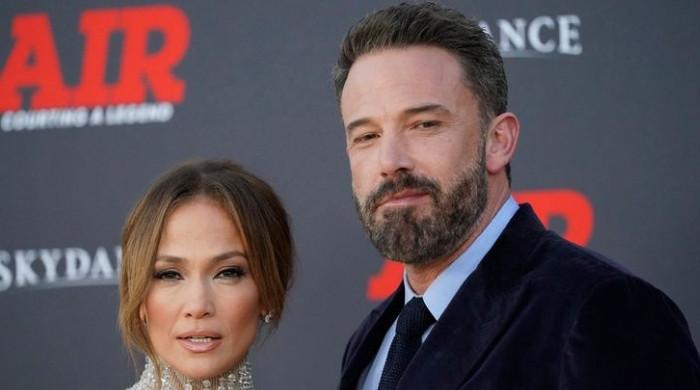“I hadn't heard of his story, which had a profound impact on me because it touched my core,” Archie Panjabi says somberly as he reflects on the matter.
It was 1997. Reena Virk was a 14-year-old Canadian girl whose parents were immigrants from India. She painted her nails blue and listened to Notorious BIG, determined to go against the house rules to fit in. She's just a normal teenager. One night, a group of classmates lured her to a party before she was brutally beaten and killed. Her gruesome death brought attention to bullying and peer pressure, especially among girls, and was considered a national tragedy in Canada.
The harrowing story gets the true crime treatment in Hulu's “Under the Bridge,” which wrapped Wednesday. The limited series follows writer Rebecca Godfrey and police officer Cam Bentland, played respectively by Riley Keough and Lily Gladstone, as they investigate the beating and murder of Virk (Vritika Gupta). Six teenage girls, many of them Virk's classmates, were eventually convicted of assault charges for the beating, and Kelly Ellard, along with Warren Glowatski, were convicted of her murder.
Developed by Quinn Shephard and Samir Mehta, the series takes its form largely from Godfrey's 2005 book of the same name, but also draws on the memoir “Reena: A Father's Story” by Virk's father, Manjit Virk, to help deepen. his portrait of Reena and her family and to go beyond simply retelling a horrible murder. As a result, it delves into the race and otherness experienced by a girl who longed to belong.
The time-jumping story begins with Reena and her quest to fit in with Josephine Bell (Chloe Guidry), a foster child obsessed with John Gotti, and her group: Kelly (Izzy G) and Dusty Pace (Aiyana Goodfellow). – that leads to damaging rumors and the night that took a fatal turn.
Panjabi plays Reena's mother, Suman, a reserved but determined woman and member of the Jehovah's Witnesses faith who runs a household with rules that exasperate her eldest son. Throughout the series, Panjabi subtly conveys the tested patience of a mother and, later, the abject pain, devastation and strength of a father experiencing the ultimate tragedy: the death of a child.
“It was a very dark path to be able to access that level of grief,” says Panjabi, who has a son. “You look at your own life and you can't imagine it. …I mean, how do you access that? Suman is an incredibly strong woman. And the more she worked, I realized what Reena was trying to escape from, which is her [mother’s] Faith (she is a devout Jehovah's Witness) is precisely what constitutes a guiding light for someone. He did not cure her, but he put her on the path to healing.”
“It was a very dark path to access that level of grief,” says Archie Panjabi.
(Jennifer McCord / for The Times)
It all leads to a surprising and powerful moment in Wednesday's finale, titled “Mercy Alone,” in which her character confronts one of her daughter's teenage killers, Warren (Javon “Wanna” Walton), before he is court. And she forgives him.
“I still can't understand what he did, what it must have cost him to forgive,” Panjabi says. “Everything inside me, when I had to say those words, I couldn't control the pain and how difficult it was to see the killer in front of me. He looked so helpless. But what he had taken from her life was unbearable. I didn't care that he was melodramatic. He felt authentic. He felt very, very raw.”
The series plays with the timeline of events and dramatizes elements of the real story (for example, Gladstone's character Cam, a native law enforcement officer, is a made-up character) and the scene with Warren is another example of it. In real life, after Glowatski was sentenced to prison, Manjit and Suman Virk went through a restorative justice program, in which the families of victims and offenders meet face to face. At that time, the couple extended their forgiveness to Glowatski, which Godfrey detailed in a 2019 reprint of his book. Mehta says they moved this event because it was a much longer process in real life, but it still illustrated the “ radical forgiveness” by Suman Virk.
“What happened to Reena was a result of larger systems at play, cycles of violence that actually began before she was even born,” Panjabi says. “For me, the climax of the show really had to be someone having the strength and courage to break that cycle. Suman really felt like the right person to step forward like that. Building the scene relied heavily on her forgiving him, in fact, before her testimony because, on some level, spiritually and emotionally, that seemed true.”
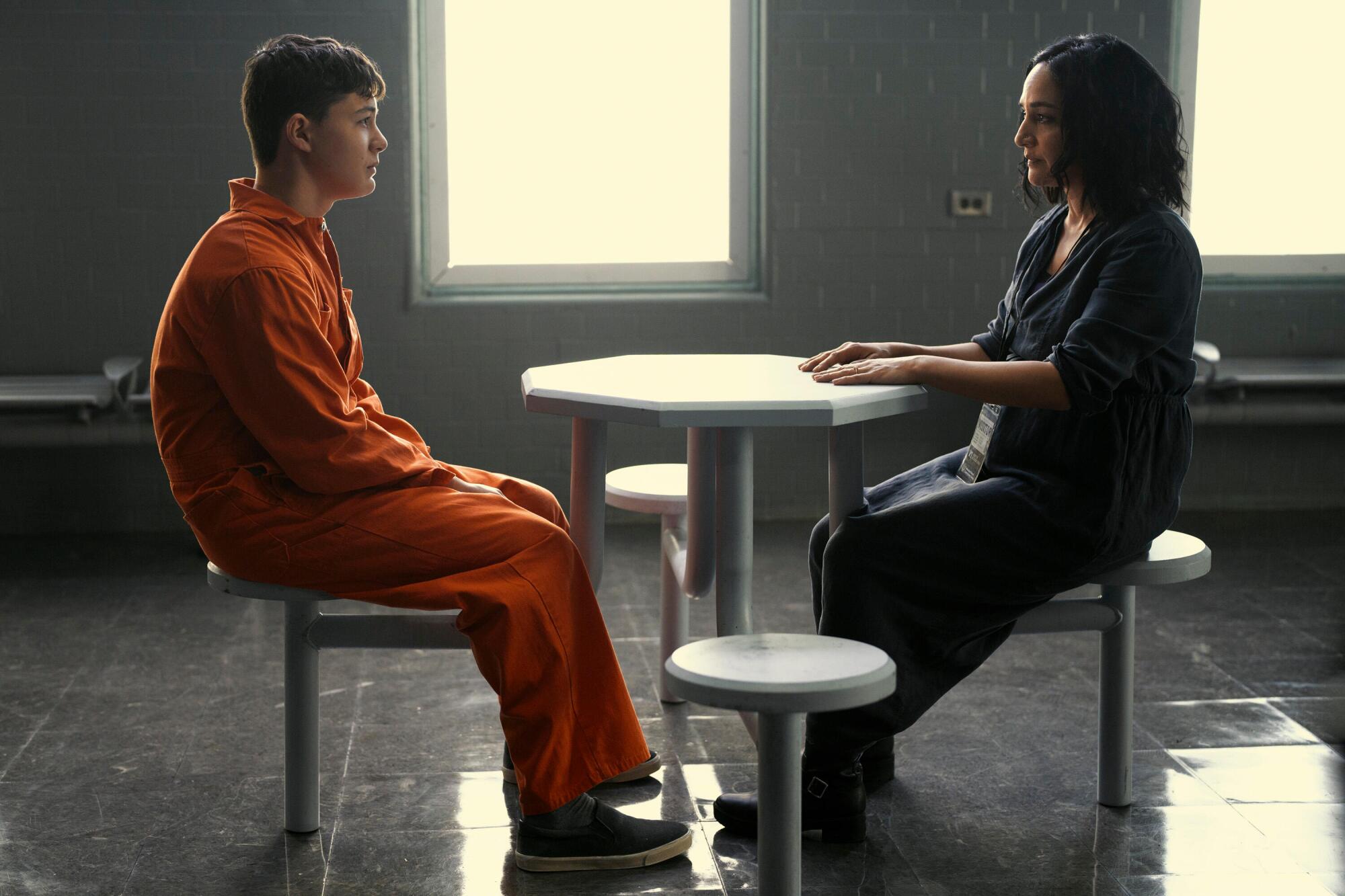
Warren (Javon “Wanna” Walton) and Suman (Archie Panjabi) in the finale of “Under the Bridge.”
(Darko Sikman/Hulu)
All these months after production wrapped, shedding the emotional weight of playing Suman Virk hasn't been easy for Panjabi. The 51-year-old actress is best known for playing mysterious internal investigator Kalinda Sharma on “The Good Wife” (for which she won an Emmy), and is familiar with exploring dark, heavy material in series like “I Know This It's true”, “Snowpiercer” and “Departure”. But the shadow of Reena Virk's case lingers: “Her story will inspire me for the rest of my life,” she says.
He makes a video call from the UK, where he lives, and it's clear that Panjabi felt a responsibility to bring the story to life. She tells a story about how she and the actors who made up the Virk family – Gupta (Reena), Ezra Faroque Khan (Manjit) and Anoop Desai (Reena's cool uncle Raj) – are all in a group thread and one day she sent a message: “OK, should we go to Victoria? “I feel like I want to go.” So, they embarked on a road trip to the quiet suburbs of Victoria, British Columbia, where the events occurred.
“It wasn't long before we were in that car and started arguing; We really felt like a real family because we were arguing about what music to play, what restaurant to go to,” he says, laughing. “But we went to the real place. We just wanted to go and pay our respects. We brought some things she liked there, like raspberries and some flowers, and read poems (Gupta wrote a poem specifically for Reena). We thought that the trip would be very dark, that we would feel sad. But you know, it was full of joy and peace, and we felt like maybe this is a celebration of that life, of that love and the joy that she had.”
In the mid-to-late 1990s, Panjabi was at the beginning of her screen career. Born in London to Indian immigrant parents, she was trying to make a name for herself with small roles in television series such as “The Knock” and “Dad.” Reena's experience growing up in that era, before the Internet and global travel, was familiar to Panjabi, who also felt different and faced rejection.
“You create this false self to fit into your peer groups, which is this very modern culture,” Panjabi says. “And then you create this false self to meet your parents' needs and try to respect them. You are constantly struggling to interpret these two different selves; I call it a kind of cultural schizophrenia.”
Panjabi said Reena is desperately trying to fit in with this group of girls and please her parents, at an age where she is questioning herself and her identity. “Playing the mother helped me understand what my own mother went through,” she said.
And it made Panjabi an attractive and compassionate scene partner, according to 14-year-old Gupta. The way the soft-spoken young actress tells it, Panjabi went above and beyond to make sure her co-star felt comfortable and safe throughout production. She makes Gupta reflect on scenes, including when Panjabi's Suman catches her character shaving her legs, that were emotionally draining.
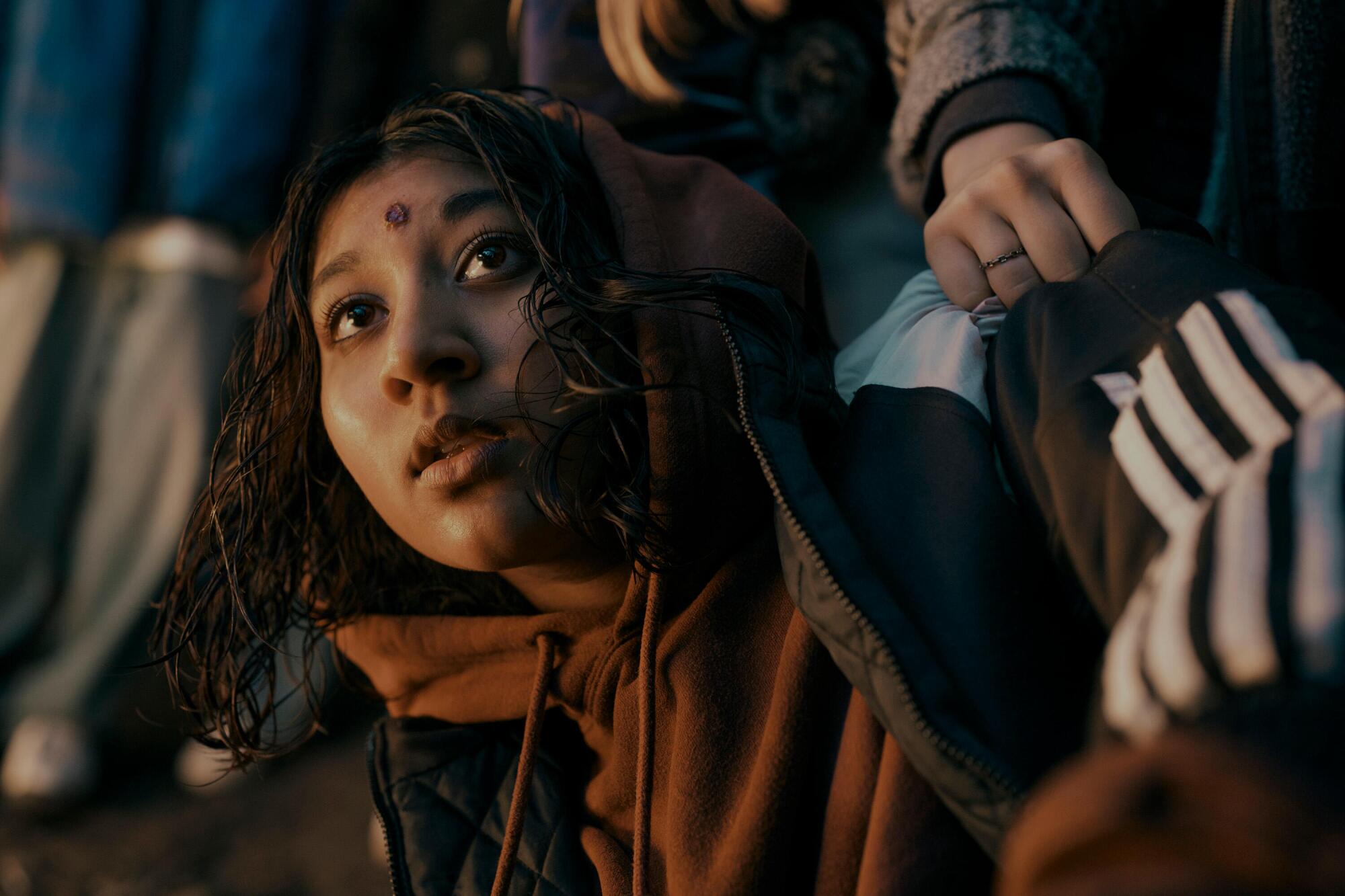
Vritika Gupta played Reena Virk in “Under the Bridge.”
(Darko Sikman/Hulu)
“We filmed it many times,” says Gupta. “Each and every time, Archie would give me a hug after finishing each take. And there's another moment, after the dinner scene when the girls come over, where I start crying in my bed and realize that Smooch [the family bird] It is gone. I remember having to enter a really dark space in my mental state. And I remember Archie came and gave me a big hug and said, 'Everything's okay.' You're doing a great job.' I think those words of affirmation definitely helped me.”
After her daughter's death, Suman Virk became a tireless advocate against bullying. She died in 2018 at age 58. Panjabi considers for a moment whether she would have wanted to meet Virk if she were still alive and what she would have wanted out of that experience.
“I think because this is a Suman version, not Suman, so some parts have been fictional, I almost have to remind myself,” she says. “I don't know what she would have said. That do you say? What she has done after the death of her daughter and has turned her pain to become an activist against bullying is extraordinary.”
While Shephard and Mehta met Manjit, Panjabi was not aware of that meeting. But she read her book to extract everything she could for the character. “You don't see her much, but when you see her, it's so powerful that I thought she really had to go all in: read all the books, read everything that's out there, [and] Talk to Quinn to really try to connect with someone who is sadly no longer alive.”
When asked if she thinks “Under the Bridge” is the show Suman would have wanted made to tell her daughter's story, Panjabi takes a moment. And she gently shrugs her shoulders to express her uncertainty.
“I feel like there are so many things that I just tune out and just add all that, all those questions, to that character; Put everything you can into that character, to try to do him justice.”

